NEWS FROM THE NETWORK
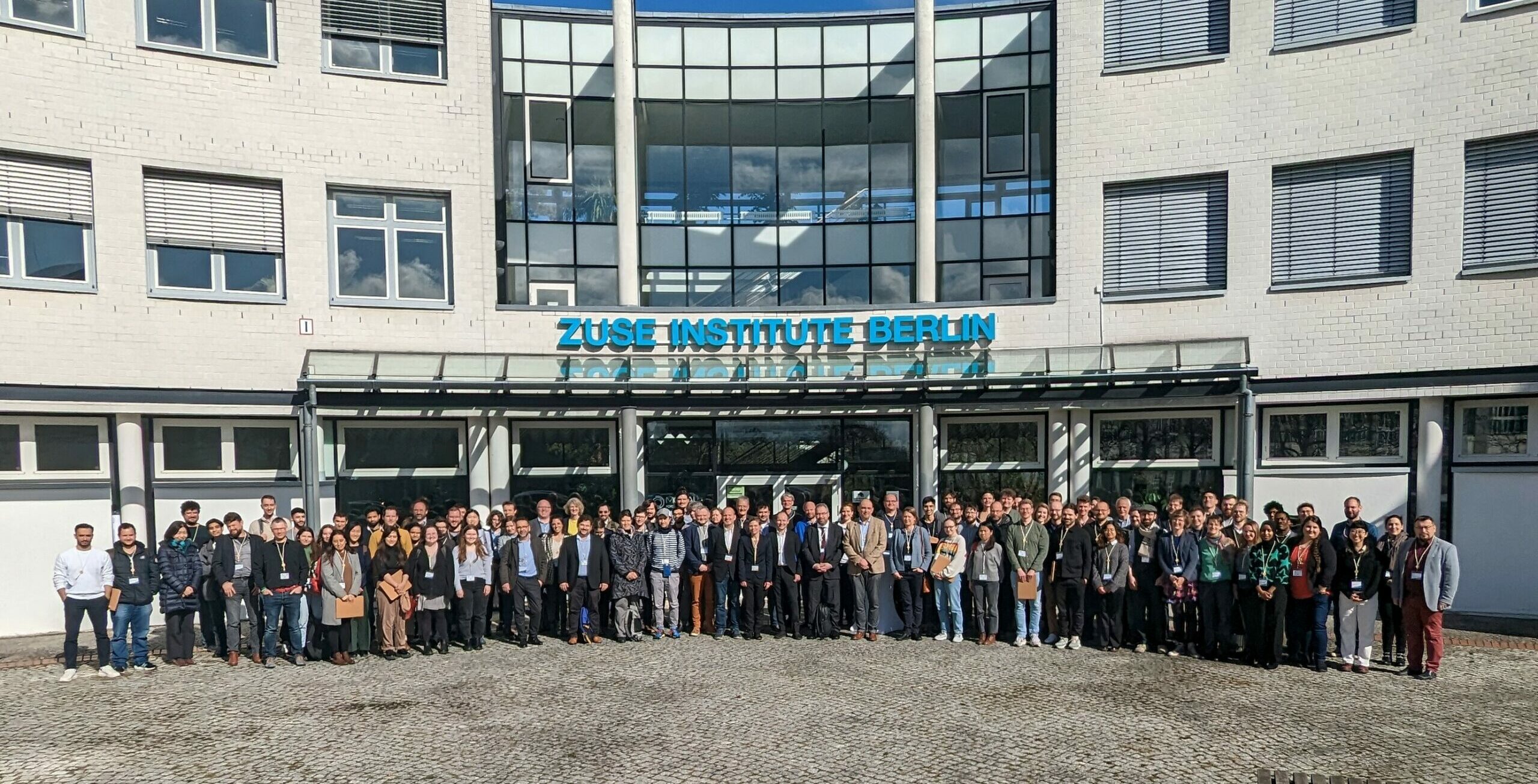
First Annual Meeting of the Modeling Network for Severe Infectious Diseases MONID in Berlin
At the “First National Conference on Infectious Disease Modeling”, more than 100 national and international scientists gathered in Berlin for the first time in order to jointly promote the strengthening of modeling competence in Germany. The BMBF-funded Modeling Network for Serious Infectious Diseases (MONID) proudly looks back on its first successful annual conference. From Wednesday, March 15, 2023 to Friday, March 17, 2023, more than 100 modelers gathered at the Zuse Institute Berlin to exchange

2. Statement of the Modeling Network for Severe Infectious Diseases (MONID)
The Modeling Network for Serious Infectious Diseases (MONID) has released a second statement after its first one in September on the further course of the SARS-CoV-2 pandemic in autumn and winter of 2022/2023. In connection with the current debate, the second statement contains new modelling results on the possible effects of a repeal of the obligatory isolation and a withdrawal of the mandatory use of masks in public transport. In the second statement, in addition
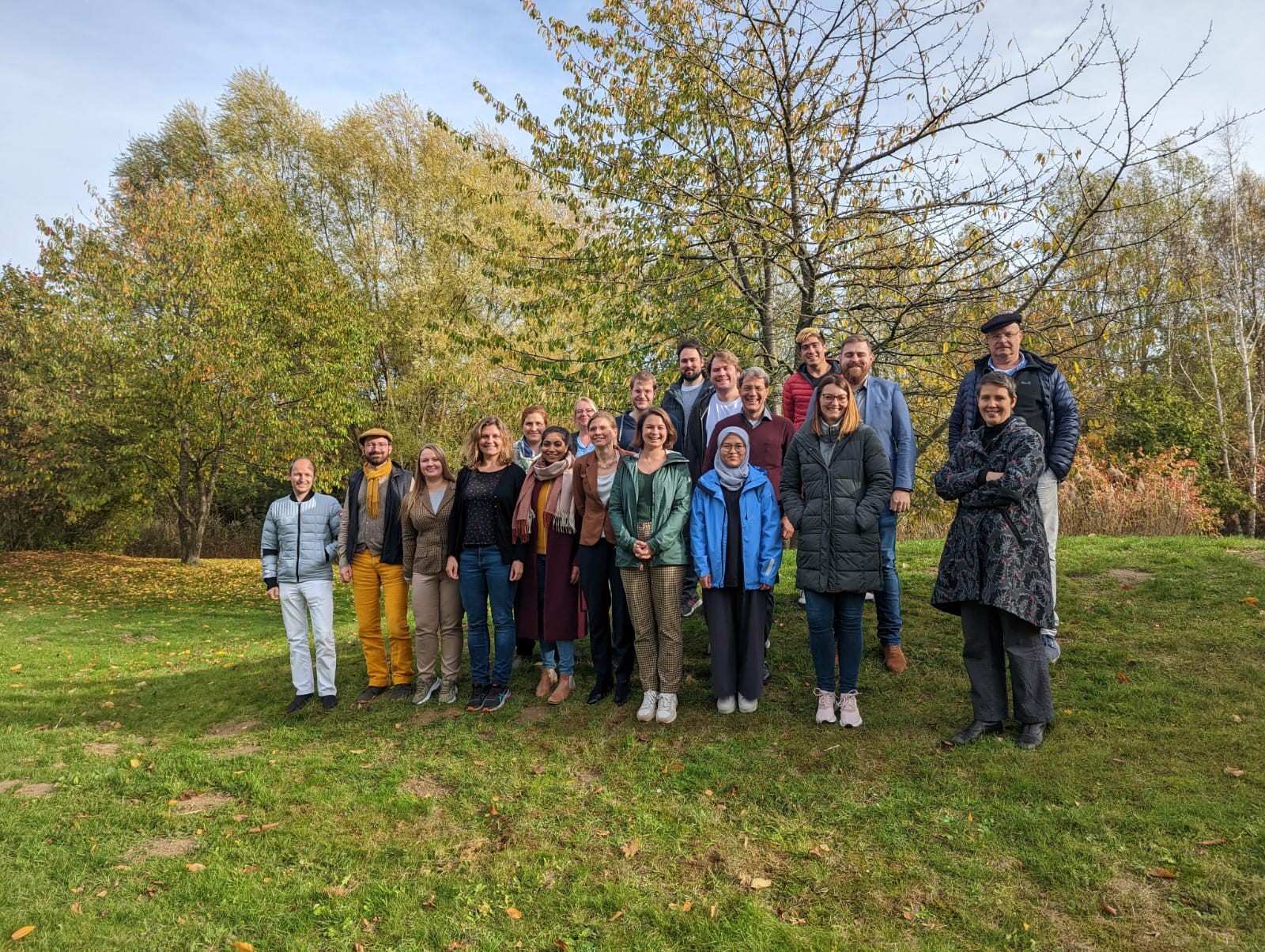
Respinow Kick-Off
RESPINOW – One of the seven research networks of the modeling network held its kick-off meeting in Braunschweig from 2nd of November – 3rd of November 2022. In the course of the meeting, first results were presented and the further steps were discussed. The collaborative project RESPINOW, led by Dr. Berit Lange, Head of the Clinical Epidemiology in the Department of Epidemiology at the Helmholtz Centre for Infection Research (HZI), aims to investigate the medium-
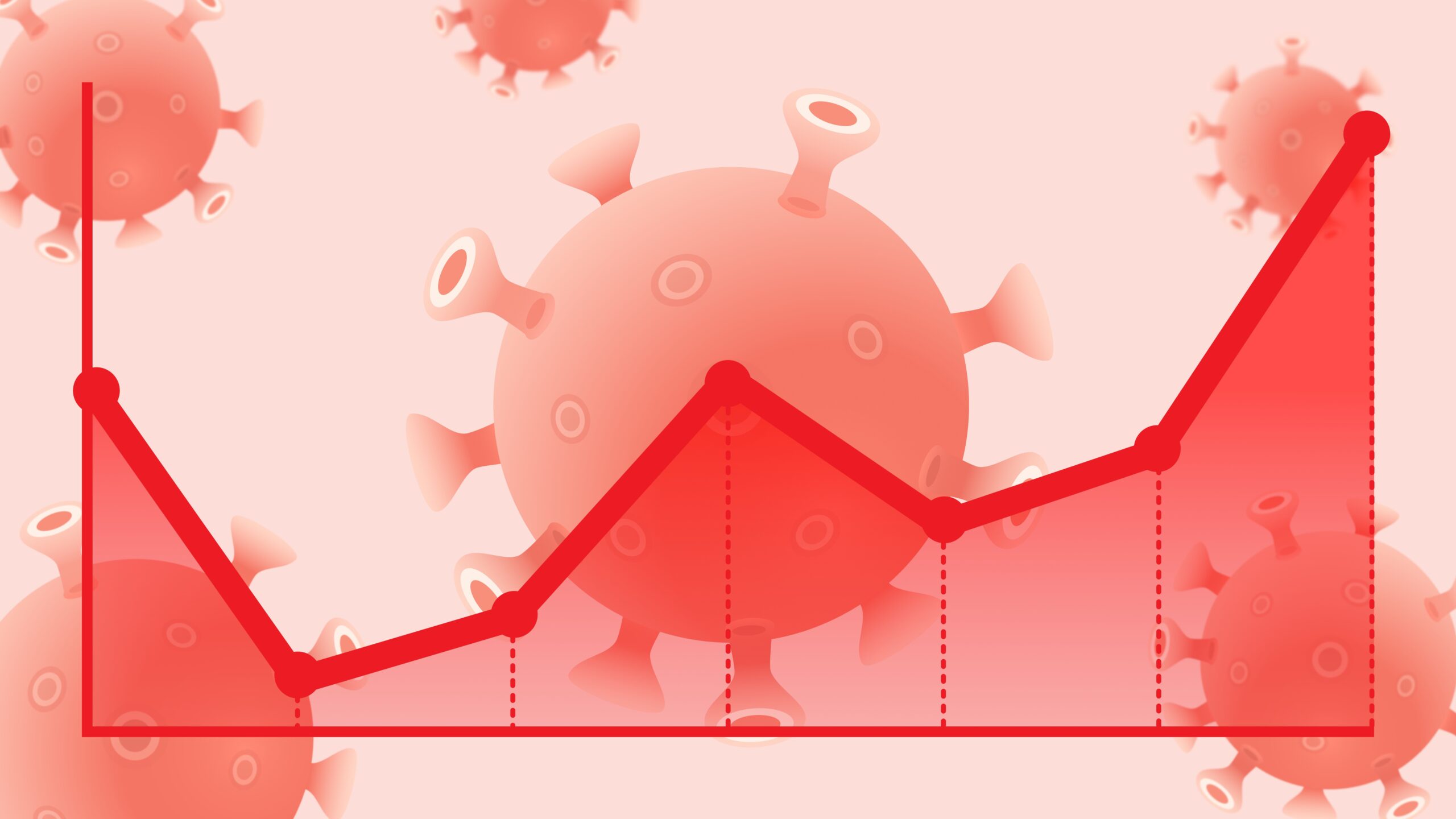
Statement on Covid-19 scenarios released for fall and winter 2022/2023
In the course of a workshop of the modeling network for severe infectious diseases, the participants simulated possible scenarios for the further development of the SARS-CoV-2 pandemic in the fall and winter of 2022/2023 and published them in a joint statement. In total, three defined scenarios were developed that differ in the occurrence, transmission dynamics, and risk for severe infection of new virus variants. The objective of this modeling was to make predictions about the
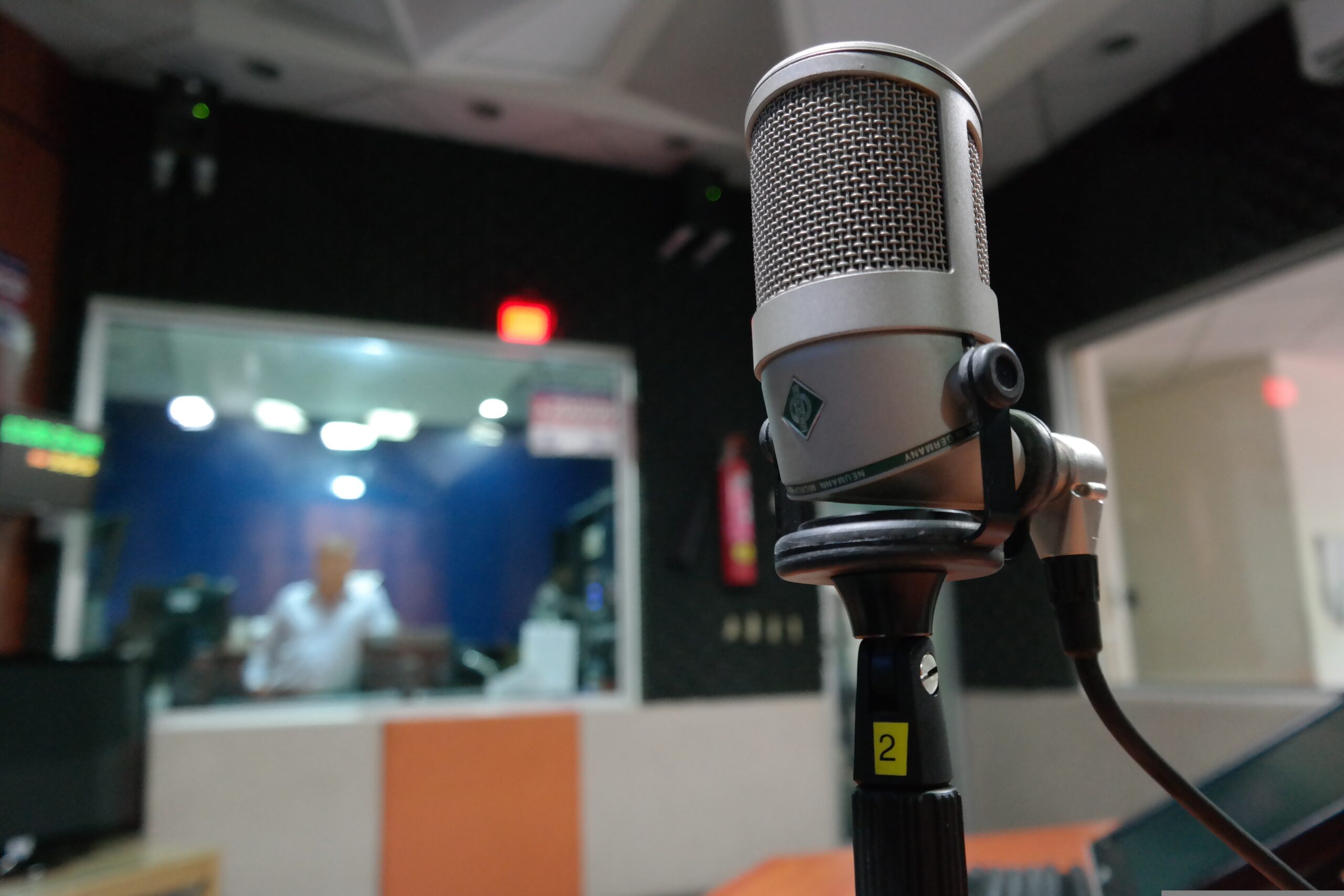
Deutschlandfunk Interview with Jun.-Prof. Dr. Alexander Kuhlmann
On Monday Jun.-Prof. Dr. Alexander Kuhlmann, head of the modeling network’s coordination office, was interviewed by Deutschlandfunk (DLF). The interview request arose in response to the short statement published by the network on the course of the SARS-CoV-2 pandemic in the fall and winter season of 2022/2023. Together with other experts of the modeling network, the health economist simulated three different scenarios for possible SARS CoV-2 infection waves for this fall and winter, already taking
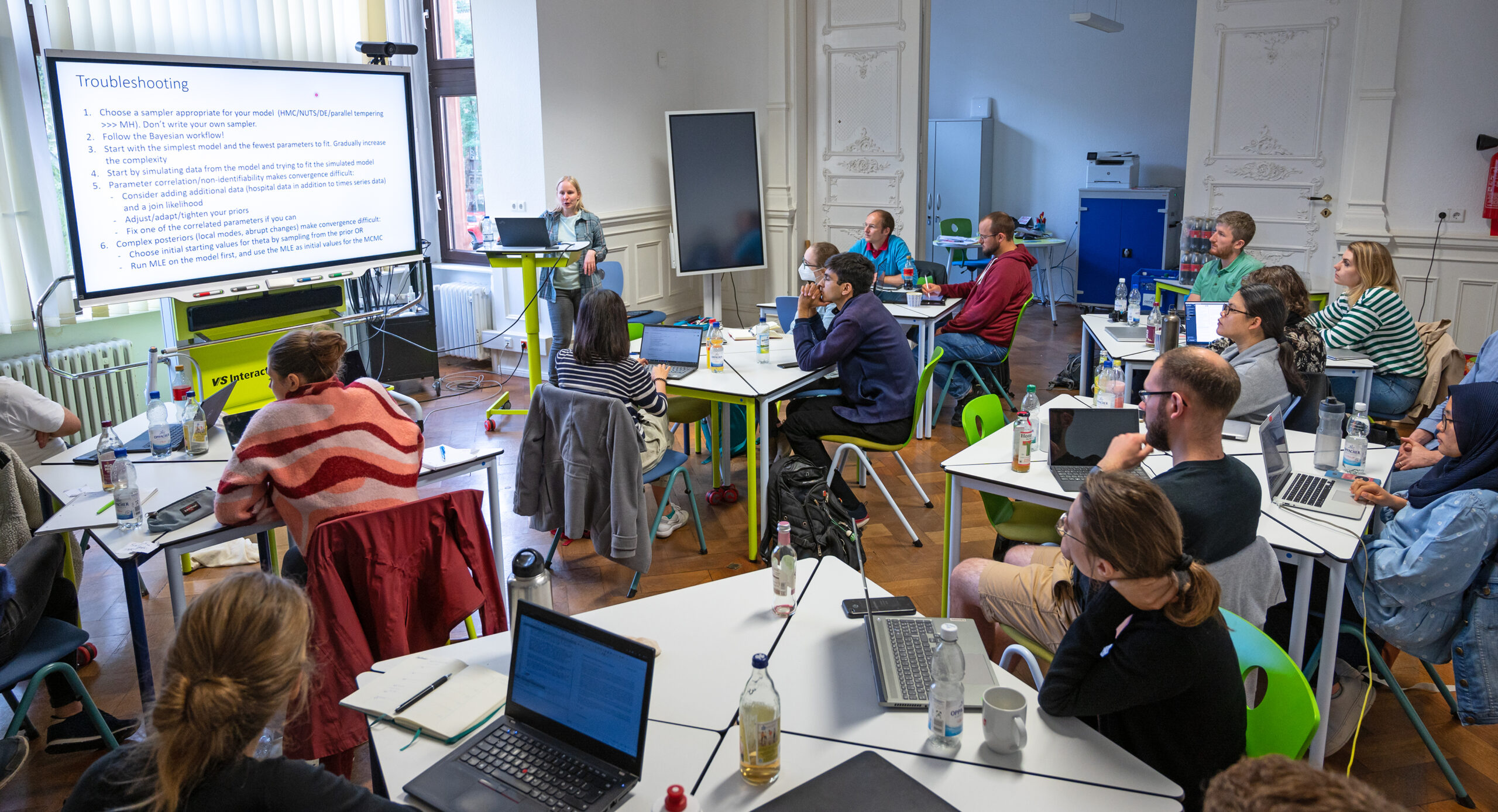
First MONID Summer School in Halle
The joint MONID Summer Schools are a central activity for the education of young scientists. The first summer school, which took place from 12-16 September 2022 in Halle (Saale), focused in particular on the fundamentals of mathematical modelling of infectious diseases and strengthened the networking of the seventeen participating doctoral students from various disciplines (e.g. mathematics, physics, epidemiology, psychology, economics). The topics covered epidemiological fundamentals, model types, optimisation/calibration, implementation of interventions, health economic evaluations and
